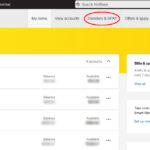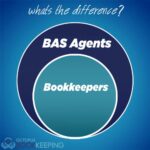With the economy faltering, regions of Australia in lockdown, and negative economic growth anticipated, the following may provide some respite to company owners and individuals.
Interest-only
Almost every business owner has a loan that needs to be paid back. Some business loans and many house loans provide an interest-only option, which allows you to pay only the interest portion of a loan for a set period of time, lowering your repayments. Examine the conditions of your loan contract to discover if you have this option. Even if your loan does not have this feature, some lenders will allow you to pay interest solely on your application if you or your company is having financial difficulties. To better manage cash flow, look into extending payment terms with suppliers. If at all possible, request that payment days be extended from 30 to 45 days.
Varying PAYG Instalments
If your company is losing money this year compared to last, you should consider lowering your PAYG instalments. PAYG instalments are effectively prepayments toward your anticipated tax bill at the end of the year. The amount payable in instalments is usually determined by your prior year’s income. The ATO provides either a fixed dollar amount for instalment payments or an instalment rate. Because the amounts and rates are calculated based on your prior year’s earnings, you should reduce the PAYG instalment dollar amount if your current year’s turnover is lower than last year’s.
Paying less in PAYG instalments may give significant short-term relief to your company. If you make a downwards variation, be aware that penalties may apply if the amount you pay is less than 85 per cent of the actual tax liability on your business and investment income for the fiscal year. Your next chance to change an instalment will most likely be on your September BAS, which your bookkeeper may help you with; nevertheless, the choice to vary should always be made with your tax agent’s approval.
Rent-Free Periods
If your lease is about to end, ask your landlord for a rent-free period in the coming term. It’s a typical commercial practice for landlords to give lease incentives to secure your business when your lease is due renewal or when they’re attempting to entice you as a new tenant. There are various forms of lease incentives, including:
- Payments in cash (including upfront payments, removal costs, surrender value of an existing lease etc.)
- Rent-free periods
- Unrestricted fit-outs
- Non-monetary incentives such as vacation packages, free equipment, and so on.
Selecting a rent-free period (which is the most typical incentive offered) not only relieves you of one of your company’s highest fixed costs but also gives you the best tax outcome. Rent-free periods have no tax implications. The money saved due to the rent-free time will not be assessed to the renter, but it will be deductible.
Access Your Superannuation
Individuals who were financially affected by COVID-19 (reaching different income downturn benchmarks) could access up to $20,000 ($10,000 in two tranches) of their superannuation savings during COVID-19. Even though this option is no longer available, those who have experienced financial hardship should be aware that they may still be entitled to early access to their superannuation! To give you some context, you can only access your superannuation if you meet a set of conditions. The following are by far the most common release conditions:
- Reaching Retirement Age (between 55 and 60 years old, depending on when you were born).
- Resigning from a job before or after reaching the age of 60.
- Attaining the age of 65 (even if you are still working).
- Dying.
Individuals can, however, use their superannuation savings for compassionate reasons. An individual’s superannuation benefits can be released on compassionate grounds if they are unable to cover the following expenses, subject to certain cashing restrictions:
- Medical treatment or transportation for the person or a dependent.
- Making a loan payment to avoid a mortgage foreclosure on the individual’s primary residence or the mortgagee exercising an express or statutory power of sale over the individual’s primary residence.
- Payments to modify an individual’s primary dwelling or vehicle to fit the individual’s or a dependent’s special needs as a result of a severe handicap.
- Expenses related to a person’s palliative care, funeral, or burial in the event of approaching death.
- Any other expenses that are commensurate with the above-mentioned compassionate grounds requirements but do not meet the specified criteria.
On compassionate grounds, the amount of superannuation that can be released is limited to what is realistically required. If your application is approved, your superannuation fund will provide a lump-sum payment to you. An application must be submitted to the Federal Department of Human Services (www.humanservices.gov.au)
BUSINESS SUPPORT – Grants
With more than 40% of Australia’s population under lockdown, various state and territory-specific incentives are available to enterprises that have been harmed financially due to the restrictions. If you need help determining eligibility or filling out an application, talk to your bookkeeper or accountant. The following grants are presently available:
NSW:
Small business fees and charges rebate
VIC:
Small Business COVID Hardship Fund
QLD:
2021 COVID-19 Business Support Grant
ACT:
COVID-19 Business Support Grant
COVID-19 Small Business Hardship Scheme
NT:
Territory Business Lockdown Payment Program – Lockdown (round 2) payment







